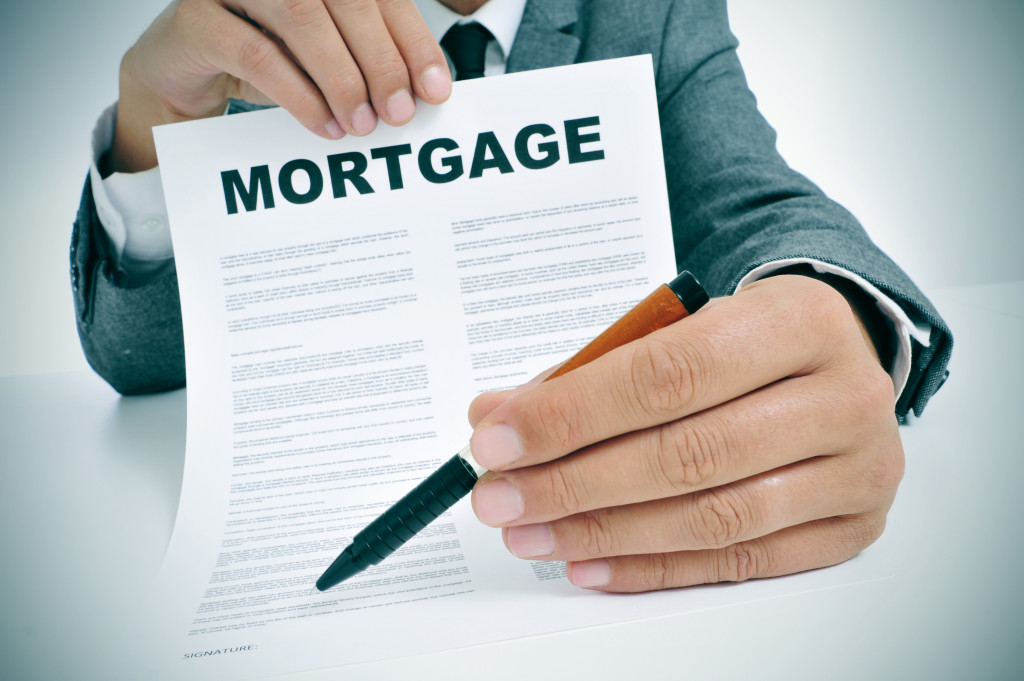The COVID-19 pandemic has transformed our lives in a great variety of ways. For many, one drastic change that may have occurred is in employment. Some people lost their jobs, while others sought safer and more practical work arrangements for their current home situations.
Since we are living in unpredictable times, everyone has been searching for effective ways to save money. Falling behind on mortgage payments is one tendency when your budget becomes tight. Although this seems like a good short-term solution, non-payments can have long-term consequences.
When You Start Missing Payments
Failing to make your mortgage payments on the due date first puts you at risk for late fees on top of your bills. You are charged a late fee 15 days after your mortgage is expected, as lenders usually allow a grace period to let you catch up with your payments for your home loan.
One issue to consider when falling behind on mortgage payments is its impact on your credit score. Your mortgage provider reports this overdue balance to credit bureaus that will then put this on your record.
Remember that the foreclosure process will start if your mortgage remains unpaid 120 days after it is due. COVID-19 has allowed room for moratoriums on foreclosures, but these have begun lifting in various areas as the temporary suspensions expired.
Foreclosures and How They Typically Work
Foreclosures are not immediate. They tend to be long processes that vary state by state. Ultimately, it should end in the sale of the property to pay off the unpaid balance of the former owner.
Lenders have the right to repossess the property as mortgages are secured loans for which borrowers have made a promise to pay. In the event that the borrower is unable to pay using money, they pay with collateral instead. Collateral is simply any personal property owned by the borrower that they pledge to a lender to settle a debt.
For mortgages, the home is the collateral. Since lenders have a lien on the property’s title, they have a claim to it until the debt is fully paid off. In the case of a failure to pay, the lender then reserves the right to foreclose the home.

What to Do When You Can’t Pay
It is vital to move quickly when you realize that you cannot meet the terms of your mortgage agreement. Here are some options that may be available to you.
1. Make adjustments to your loan
Certain home loans are owned by one of two organizations: the Federal Home Loan Mortgage Corporation, also known as “Freddie Mac,” and the Federal National Mortgage Association, also known as “Fannie Mae.” Borrowers with loans from either of these two entities can join the Flex Modification Program.
This program lets a lender modify your current mortgage so that your payments are a more agreeable price to you. Terms usually involve around a 20% reduction in your current rate and an extension of your payment period.
Note that lenders will check for a stable income source and proof of your capacity to make monthly payments. If this is a preferable method for you, contact your lender to get a complete list of their eligibility requirements.
2. Get a forbearance plan
Forbearance is what you call the period when a lender lets a borrower temporarily reduce or pause their payments on an existing loan. Approach your lender to determine if you qualify for this option. You can then discuss its terms, such as the length of your forbearance period and the reduced rate you will pay.
Note that forbearance is a temporary agreement. You will still owe your mortgage principal, interest, insurance, and taxes to the lender when your forbearance ends.
3. Get a repayment plan
A repayment plan lets you catch up to your mortgage payments when you are a few months behind. What happens in this setup is your unpaid balances are added on top of your subsequent payments for a number of months until you get back on track.
This is advisable if you can once again afford your monthly mortgage dues and are several months behind. Work with your lender to agree on your repayment period.
Avoiding Falling Behind
Emergencies occur that could drastically affect your income streams and ability to make timely payments. If possible, avoid mortgage issues by increasing your income through a side gig.
It is always best to be sure that you are financially prepared to buy a home before doing so. This means you should not go above your means. Prudence can take you a long way.

